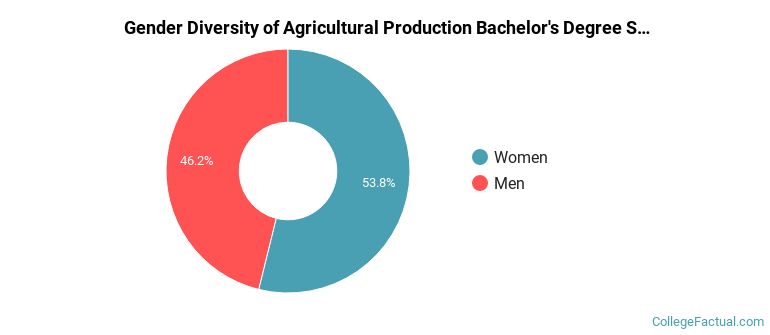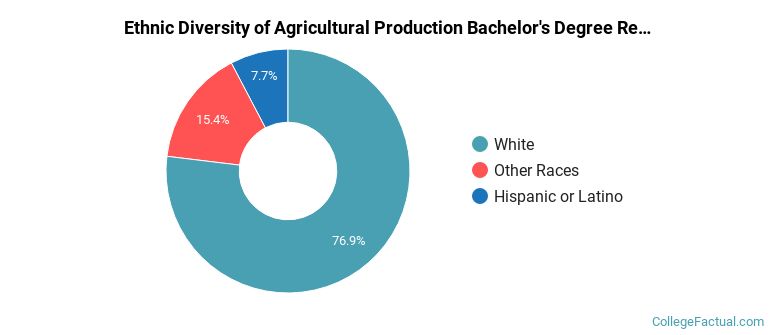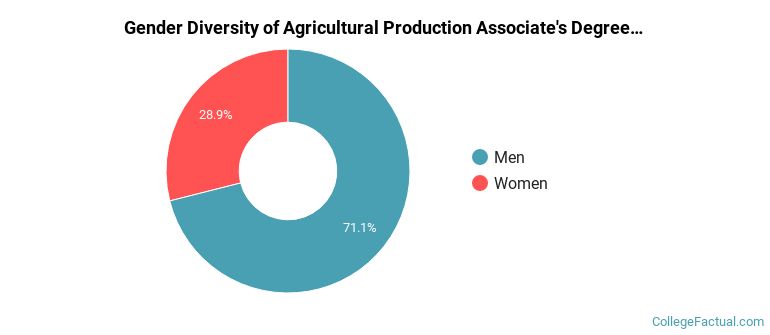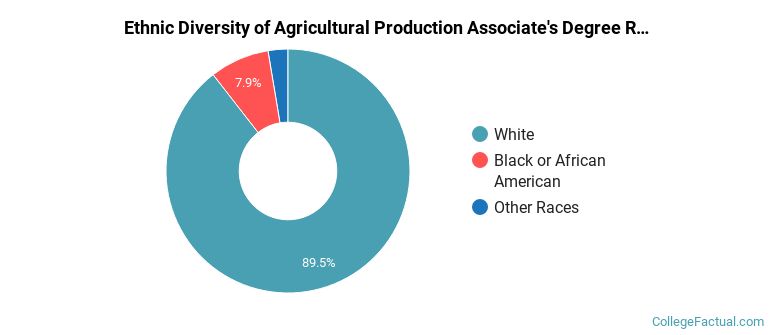 by our College Data Analytics Team
by our College Data Analytics TeamWe've gathered data and other essential information about the program, such as the ethnicity of students, how many students graduated in recent times, and more. Also, learn how NC State ranks among other schools offering degrees in agricultural production.
Go directly to any of the following sections:
NC State was ranked #5 on College Factual's most recent list of the best schools for agricultural production majors. This puts the bachelor's program at the school solidly in the top 15% of all colleges and universities in the country. It is also ranked #1 in North Carolina.
| Ranking Type | Rank |
|---|---|
| Best Agricultural Production Associate Degree Schools | 2 |
| Best Agricultural Production Bachelor’s Degree Schools | 4 |
| Best Agricultural Production Schools | 5 |
During the 2021-2022 academic year, North Carolina State University handed out 13 bachelor's degrees in agricultural production. This is an increase of 30% over the previous year when 10 degrees were handed out.
In 2022-2023, the average part-time undergraduate tuition at NC State was $1,225 per credit hour for out-of-state students. The average for in-state students was $272 per credit hour. Information about average full-time undergraduate tuition and fees is shown in the table below.
| In State | Out of State | |
|---|---|---|
| Tuition | $6,535 | $29,407 |
| Fees | $2,360 | $2,360 |
| Books and Supplies | $869 | $869 |
| On Campus Room and Board | $13,719 | $13,719 |
| On Campus Other Expenses | $3,121 | $3,121 |
Learn more about NC State tuition and fees.
Of the 13 students who graduated with a Bachelor’s in agricultural production from NC State in 2022, 46% were men and 54% were women.

The majority of bachelor's degree recipients in this major at NC State are white. In the most recent graduating class for which data is available, 77% of students fell into this category.
The following table and chart show the ethnic background for students who recently graduated from North Carolina State University with a bachelor's in agricultural production.

| Ethnic Background | Number of Students |
|---|---|
| Asian | 0 |
| Black or African American | 0 |
| Hispanic or Latino | 1 |
| White | 10 |
| Non-Resident Aliens | 0 |
| Other Races | 2 |
Online degrees for the NC State agricultural production bachelor’s degree program are not available at this time. To see if the school offers distance learning options in other areas, visit the NC State Online Learning page.
Of the 38 students who graduated with a Associate’s in agricultural production from NC State in 2022, 71% were men and 29% were women.

The majority of the students with this major are white. About 89% of 2022 graduates were in this category.
The following table and chart show the ethnic background for students who recently graduated from North Carolina State University with a associate's in agricultural production.

| Ethnic Background | Number of Students |
|---|---|
| Asian | 0 |
| Black or African American | 3 |
| Hispanic or Latino | 0 |
| White | 34 |
| Non-Resident Aliens | 0 |
| Other Races | 1 |
Take a look at the following statistics related to the make-up of the agricultural production majors at North Carolina State University.
| Related Major | Annual Graduates |
|---|---|
| Animal Science | 276 |
| Agricultural Economics & Business | 154 |
| Veterinary Medicine | 99 |
| Plant Sciences | 90 |
| General Agriculture | 34 |
More about our data sources and methodologies.